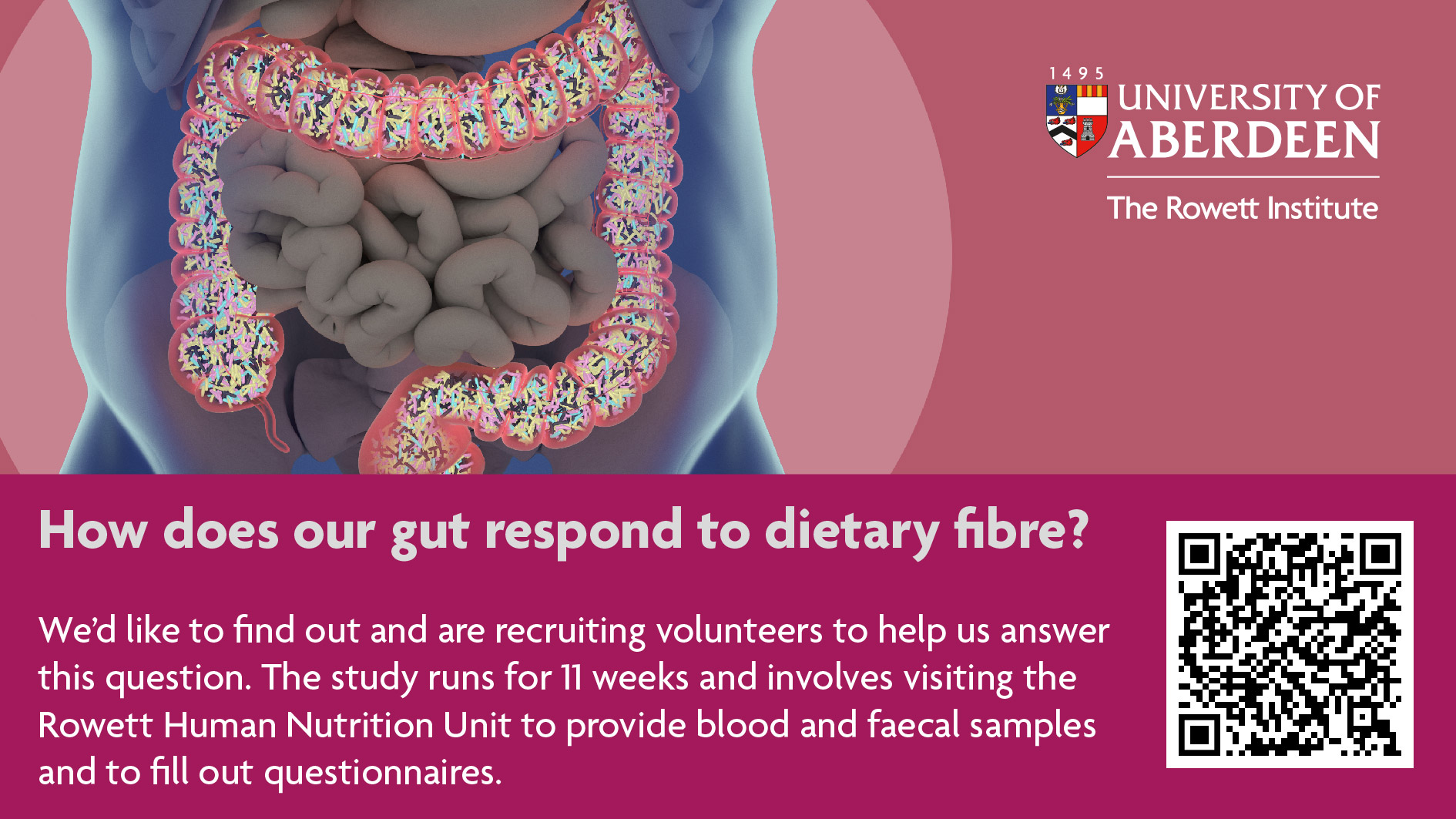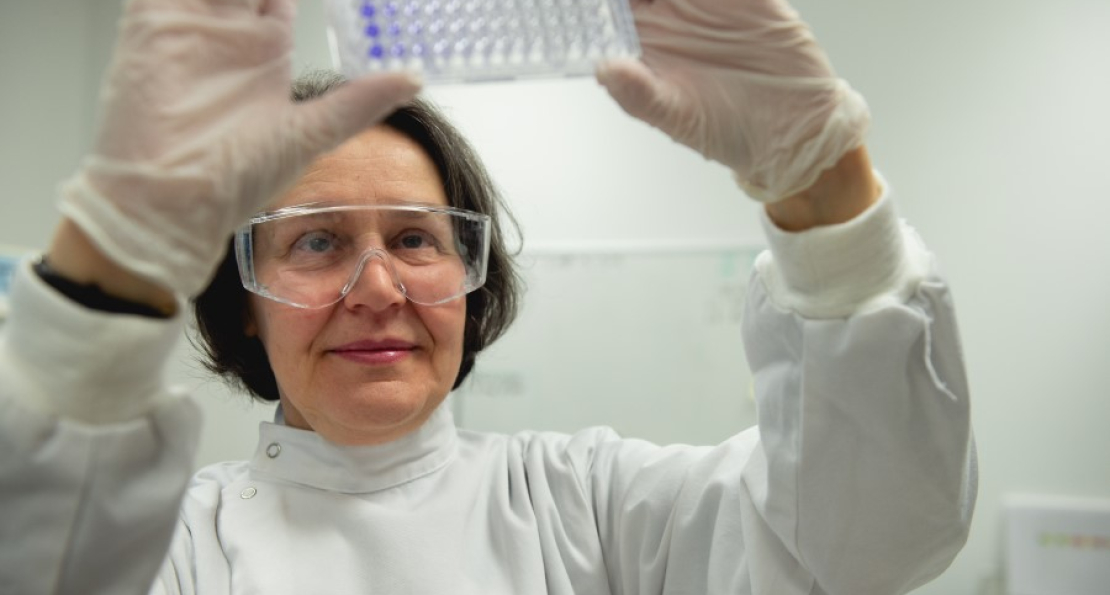Friends of ANCHOR partners with the University of Aberdeen to fund pioneering research. One of the projects funded by the charity is researching a link between the intake of dietary fibres and pelvic cancer treatment. Read about the work straight from the research team, and find out how you could get involved and play a direct role in this vital research.
A word from our funded researchers:
Dietary fibres are found in many foods, for example in various types of fruits and vegetables. These dietary fibres are shown to change the composition of the bacteria living in the intestines (known as the gut microbiota). We think that dietary fibres acting with the bacteria could enhance the way our body fights cancer cells and help patients better tolerate their cancer therapy.
We are now conducting a study looking at the effects of dietary fibre on the gut microbiota in healthy people over 60 years old. We are currently looking for volunteers to take part.
Many patients are treated with radiotherapy or chemoradiation for a pelvic cancer each year. This causes many side effects, impacting the patient’s quality of life, especially elderly patients. With an aging population, there is an urgent clinical need to find alternatives to chemoradiation.
A high intake of dietary fibre is already proven to have many health benefits; it decreases the risk of type 2 diabetes, colon cancer and cardiovascular disease. Research has shown that there is a difference in the gut microbiota of patients who do well with immunotherapy compared to those who don’t, and in patients experiencing different levels of side effects following radiotherapy. Many pelvic radiotherapy patients receive a form of dietary fibre, psyllium husk, to manage their diarrhoeal symptoms. There is emerging evidence that including dietary fibres in our diet could make radiotherapy work better against the tumour too.
If this were to be confirmed, it would be a major improvement in patient treatment. However, there is a long way to go before this could be introduced into routine clinical care. The current study is the first step in our journey.
To make this research possible, we are looking for healthy volunteers over 60 years. The goal of this study is to explore in detail how dietary fibres affect the gut microbiota. The long-term goal is to discover if dietary fibres could aid in the treatment of pelvic cancers.
Volunteers will be asked to take three different dietary fibre supplements for 14 days at a time, and to fill in some questionnaires at home. They will be asked to attend the Rowett Institute on six days over the course of 11 weeks, and to bring in a stool sample, give a blood sample and complete some questionnaires. The results of the study will help us better understand the role of dietary fibre in our gut.

Generously funded by Friends of ANCHOR, the multidisciplinary team from the University of Aberdeen comprises Merel van den Haak, PhD student, Prof. Anne Kiltie, Friends of ANCHOR Clinical Chair in Oncology, Prof. Alexandra Johnstone, Prof. Karen Scott, Dr. Alan Walker and Dr. Graham Horgan, all from the Rowett Institute.
To find out more about the study, please visit https://www.abdn.ac.uk/rowett/volunteer/dietary_fibre_study.php. If you are interested in taking part or would like to know more, please email This email address is being protected from spambots. You need JavaScript enabled to view it. or call 01224 438756, and we can arrange a visit to the Rowett Institute to answer all your questions and meet the team. We have free dedicated volunteer parking on site, and we will provide a £75 gratuity for completing the study.


